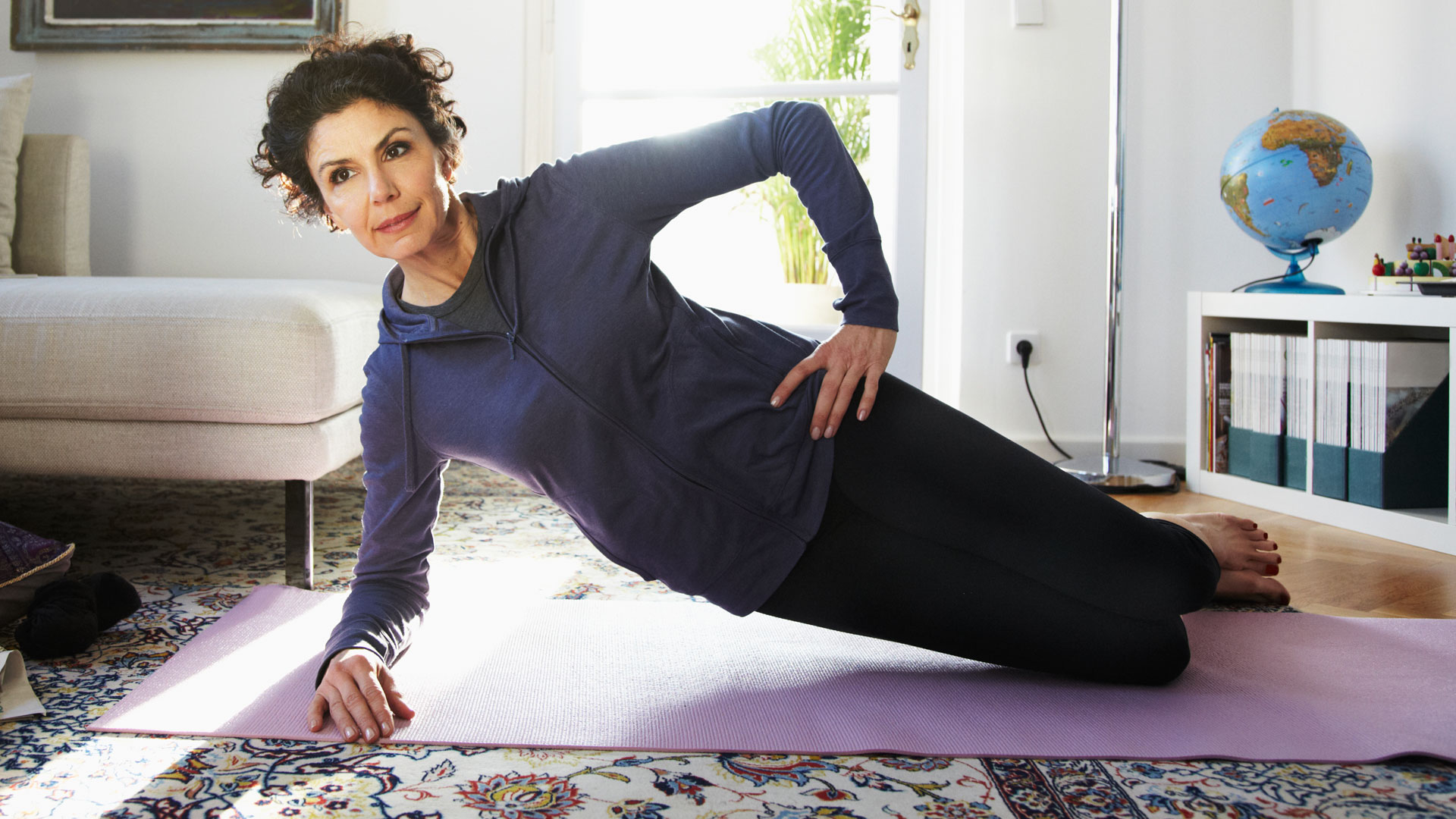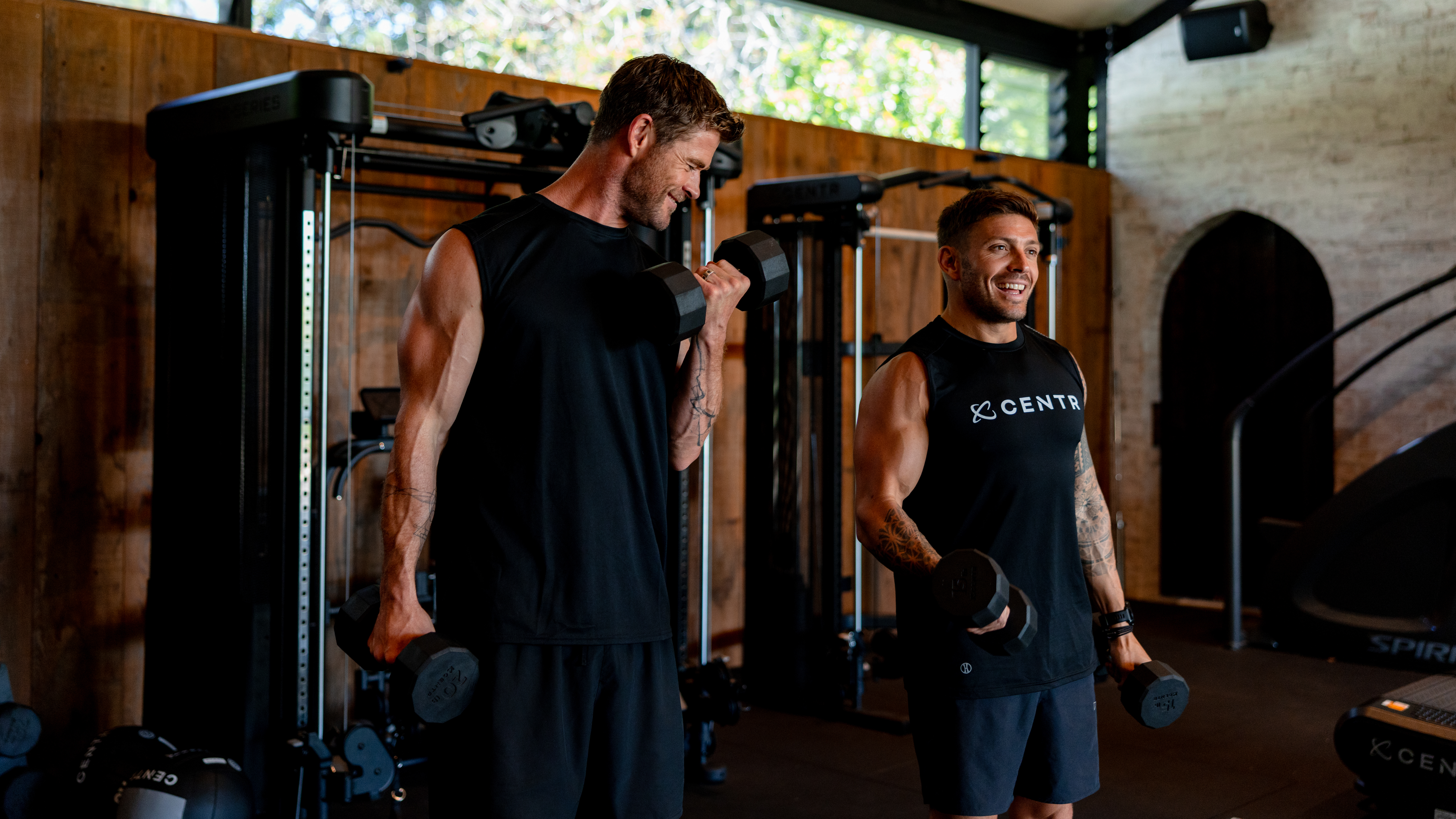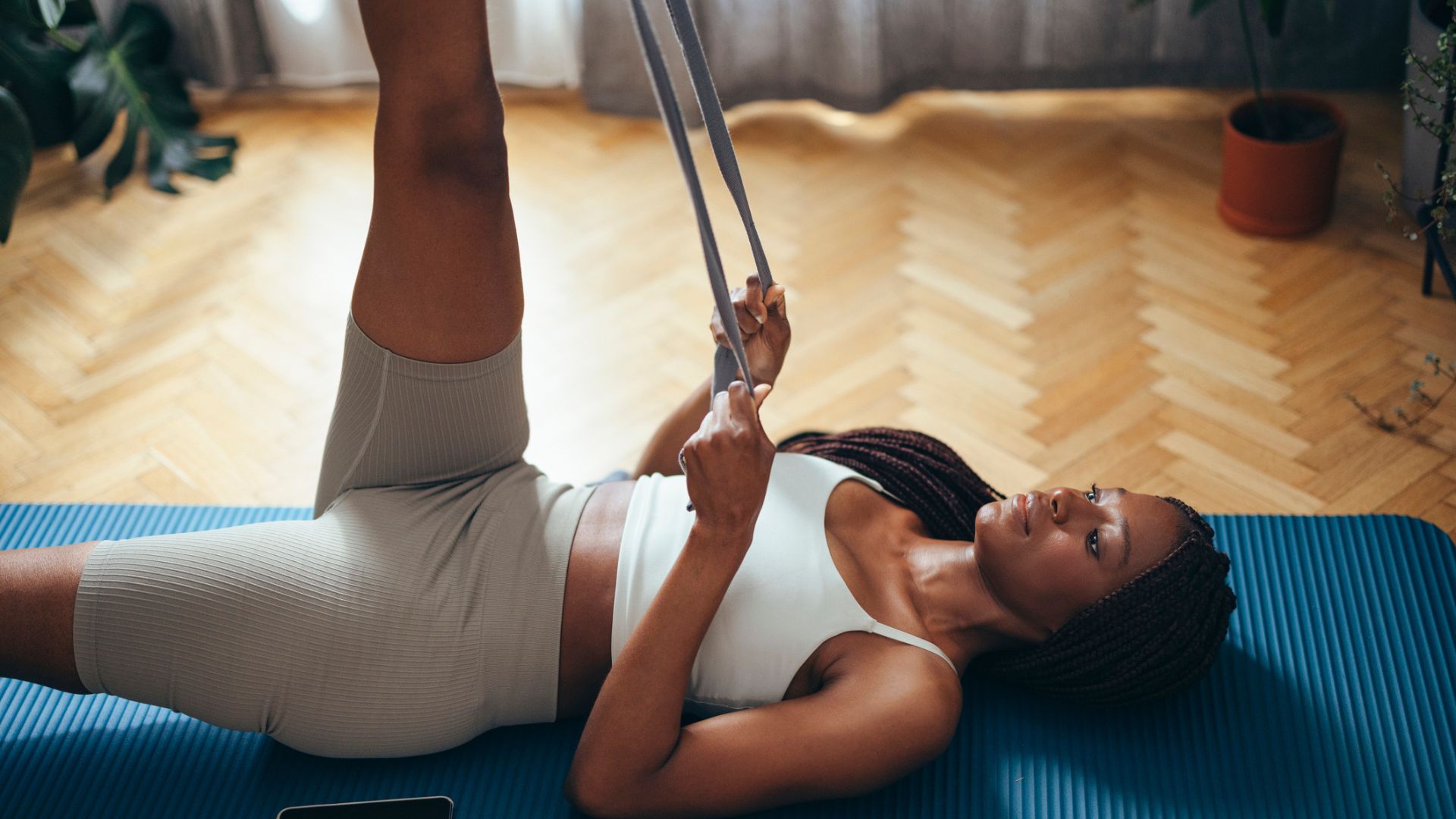Does menopause cause weight gain?
We find out; does menopause cause weight gain? And what can you do about it?


Wondering; does menopause cause weight gain? We asked the experts. As women enter perimenopause their bodies are undergoing significant changes. From shifting hormone levels to decreasing muscle and bone mass and falling metabolism. This is why we’ve found out exactly what impact these changes have on our bodies and our weight as well the impact of hormone replacement therapy (HRT), diet, exercise, and stress.
Does menopause cause weight gain? Maybe, but not necessarily - and the good news is that there are lots we can do to avoid it. This is not the time for fad diets and extreme exercise plans but for nourishing the body and taking care of ourselves. Stress reduction, strength training, and sensible diet advice can all play a part in helping us look after ourselves and our weight. Managing unhelpful menopause symptoms can also help and our guide to the best menopause supplements may also be useful here.
Does menopause cause weight gain?
“It’s not as straightforward as saying menopause ‘causes’ weight gain,” explains Dr Annice Mukherjee, an endocrinologist and author of The Complete Guide to the Menopause. “As oestrogen and testosterone levels fall, our metabolic rate drops too. This means it is easier to gain weight. However, weight gain is multifactorial and HRT won’t necessarily prevent it.”
Dr Mukherjee explains that both men and women also tend to lose muscle and bone mass from their 40s and, since muscle helps burn calories, that can also contribute to weight gain. On top of that, perimenopause and menopause are often stressful times of life. “We know that chronic stress can lead to weight gain,” she says.

How does menopause affect the body?
In addition to falling hormones and metabolism, there are other menopause symptoms that can contribute to weight gain.
Perimenopausal hormone fluctuations can disrupt sleep, for example, which is thought to impact weight. A lack of sleep has been found to lead to junk food cravings according to a 2013 study and observational studies have linked sleep deprivation with obesity. Menopausal fatigue (which may be caused in part by disrupted sleep) is also likely to play a part.
Joint aches and pains are other menopausal symptoms that can have an impact. “When our joints are aching we think we need to rest but in menopause, it’s essential that we move,” says Kate Rowe-Ham, a personal trainer, menopause coach, and founder of new platform Owning Your Menopause.
Get the Fit&Well Newsletter
Start your week with achievable workout ideas, health tips and wellbeing advice in your inbox.
“Menopausal weight gain tends to creep up,” says Rowe-Ham. It also tends to be stored around the middle as visceral fat which is implicated in health issues such as Type 2 diabetes and heart disease.”
How to cope with body changes during menopause
If menopausal weight gain is something you are concerned about, then understanding what is happening to your hormones and body can help you tackle it. “You have more power over it than you might think,” says Dr Mukherjee.
Hormone replacement therapy
“HRT might help,” says Dr Mukherjee. “It might improve your sleep quality, energy levels, and aches and pains. It might also motivate you to implement weight loss strategies. Don’t expect it to be a miracle cure though because it’s not as simple as that. You need a whole lifestyle change and a mindset change towards food.”
The role of cortisol
“We become more susceptible to stress once we enter perimenopause as our stress response is supported by oestrogen,” explains Kate. “When we have high levels of the stress hormone cortisol in our body, we tend to store more fat.”
This means that the temptation to over-exercise and undereat could actually be counterproductive in the long run. “It can raise the level of stress hormones in the body which can inhibit the body from burning fat,” says Kate. “Following a sustainable diet and exercise plan with sufficient rest days is key.”
Movement can help

“Regular physical activity will increase calorie burn as well as lowering and balancing the stress hormone cortisol. It will also help with menopause symptoms such as disrupted sleep and joint aches,” says Dr Mukherjee.
If you need to, start small. “Most people spend at least 5-10 minutes on social media,” says Dr Mukherjee. “ Go outside for a walk in the fresh air instead. Then you can build on that. Daylight is really powerful. It impacts the pineal gland which controls our body clock hormone melatonin and so helps with sleep, while the movement will also help reduce stress and improve mood.”
Try strength training
“People sometimes believe if they just run and run they will burn more calories and lose more weight but strength training can be a more effective tool from perimenopause,” says Kate.
“By increasing muscle mass, you will raise your metabolism and increase calorie burn as well as helping protect your bones. I would aim to build up to two to three 30-minute strength-training sessions a week, which can be as simple as bodyweight exercises such as squats and planks or resistance band exercises.”
Don’t forget about rest days though. “If your muscles don’t have time to repair in between you won’t see the same muscle gains,” she says.
“I actually find weight lifting addictive”, she says. “When I’m lifting weights all I’m thinking about is my form and what I’m doing. I can’t think about the dishes or anything else. It’s a bit of self-care.”
Diet

Fad diets are not your friend in perimenopause and menopause. “If you are losing more than 1lb a week in weight, you are likely putting your body into starvation mode,” says Dr Mukherjee. “It will be on high alert with stress hormones which means you are likely to regain the weight more quickly as soon as you put the breaks on that diet. It is better to gradually restrict calorie intake by focussing on eating unprocessed foods which are lower in salt, sugar, and fat.”
Dr Mukherjee also recommends cutting back on processed, wheat-based products such as bread, cakes, pasta, and biscuits. “These can spike blood sugar and contribute to weight gain,” she says.
“Time-restricted eating - where you ensure a gap of 12 to 16 hours between your last meal of the day and your first meal of the next day - also works for some women. A 16-hour gap was found to create weight loss without calorie counting in this 2018 study,” she explains. “You need to find out what works for you over time. We are all individual.”
Watch out for your alcohol intake too. “The sugar content is huge,” says Kate. The liver finds it harder to break that sugar down in menopause so it can be stored around the middle. Alcohol can also aggravate symptoms such as hot flushes.”
Kate adds: “We all want a quick fix but that isn’t going to work in menopause. You have to make a commitment. We need to feed and nourish the body without feeling restricted. Rather than cutting out food groups, eat more of the foods that nourish you, good fats and fiber. Instead of focusing on weight loss, focus on how it makes you feel.”
For more on menopause, head to our feature on does menopause make you tired?
Claire is a freelance health, fitness and food journalist who has written for titles including Women’s Health, Top Santé, Woman & Home, Feel Good You, the Telegraph and Independent. She has a passion for being outside in nature and you’re more likely to find her walking in the woods or joining an exercise class in the park than pounding a treadmill in the gym. She also has a special interest in nutrition and healthy eating, having previously been Food Editor at Top Santé magazine. Her top fitness tip? Take your exercise outdoors wherever possible. It has been shown to boost the physical as well as mental health benefits of a workout and also to make you more likely to want to do it again!
-
 Build blockbuster arms and abs with Chris Hemsworth's go-to dumbbell circuit
Build blockbuster arms and abs with Chris Hemsworth's go-to dumbbell circuitAll you need are adjustable dumbbells and 20 minutes
By Sam Rider Published
-
 Forget crunches—if I wanted to improve core strength I'd do this neck-friendly Pilates workout
Forget crunches—if I wanted to improve core strength I'd do this neck-friendly Pilates workoutAnd it takes just five minutes
By Maddy Biddulph Published